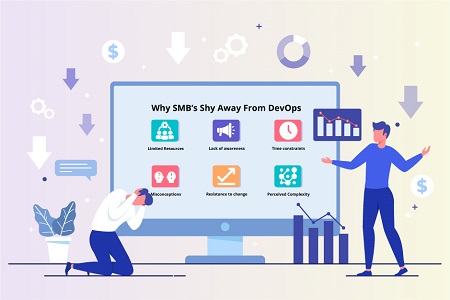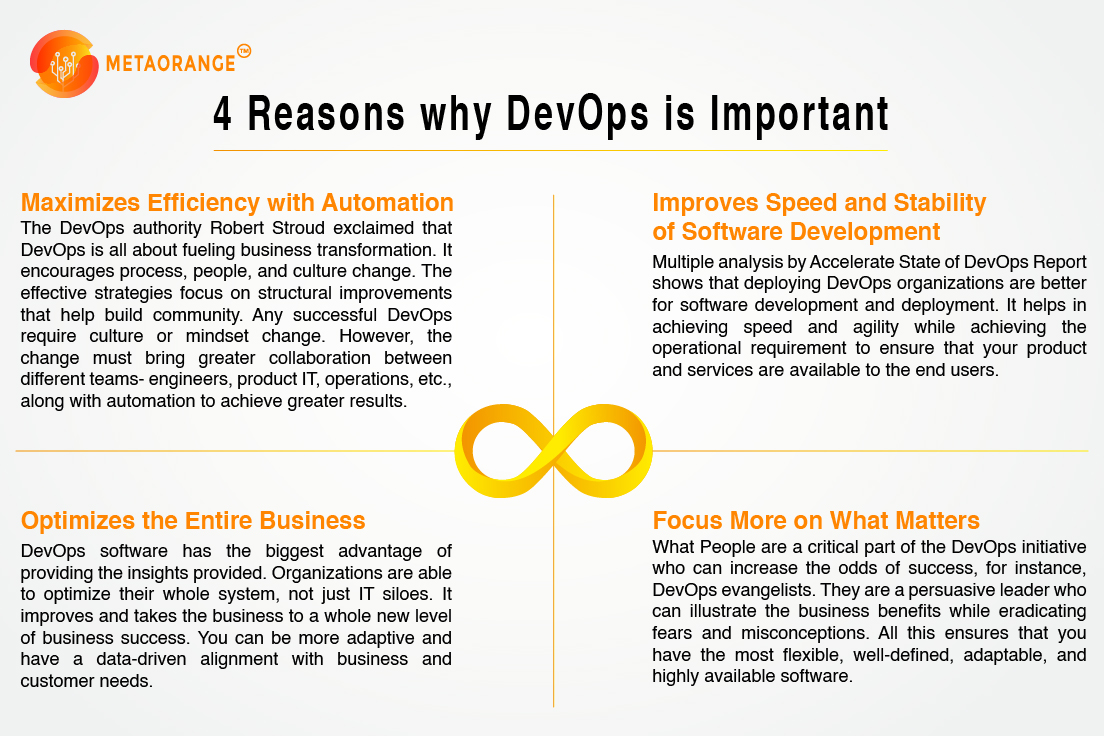In the rapidly evolving world of technology, DevOps has emerged as a transformative approach to software development and operations. However, many startups and small to medium-sized businesses (SMBs) are hesitant to embrace development operations practices. SMBs are unaware of the significant impact it can have on their growth and success. In this blog post, we delve into the reasons behind the reluctance of startups and SMBs to adopt DevOps and shed light on the consequences they face as a result.
Limited Resources and Expertise
Startups and SMBs often face resource constraints, both in terms of finances and technical expertise. These organizations operate on lean budgets and have limited manpower. It makes it challenging to allocate time, funds, and personnel for DevOps implementation. Startups, in particular, may prioritize immediate revenue generation and customer acquisition. Over investing in infrastructure, tools, and training needed for DevOps adoption. The lack of available resources and expertise hampers their ability to reap the benefits of DevOps practices, putting them at a disadvantage in terms of efficiency and productivity.
Unfamiliarity and Misconceptions
DevOps is a relatively new concept, and consequently, many startups and SMBs may not fully understand its principles, benefits, and practical applications. However, it’s essential to dispel misconceptions about DevOps, such as its applicability only to large enterprises or its requirement for extensive infrastructure. These misconceptions can deter organizations from exploring its potential, hindering their growth. Therefore, there is a pressing need for increased awareness and education among startups and SMBs regarding the transformative power of DevOps. By understanding its capabilities, they can streamline their software development and operations, leading to increased efficiency and success.
Resistance to Change and Established Culture
Startups and SMBs may struggle with resistance to change when it comes to adopting DevOps practices. These organizations often have established processes, roles, and cultural norms that are resistant to disruption. It requires a shift in mindset, collaboration, and cross-functional cooperation, which can be met with resistance from employees and management. Overcoming this resistance and fostering a culture of innovation and continuous improvement are crucial for successful DevOps adoption.
Time Constraints and Immediate Deliverables
Startups and SMBs operate in a fast-paced, highly competitive environment, where time-to-market can make a significant difference. This pressure to deliver products quickly may lead these organizations to prioritize immediate deliverables over long-term investments in DevOps practices. Development operations implementation requires upfront investments in tools, infrastructure, and training, as well as a realignment of processes. The short-term demands of meeting deadlines and fulfilling customer requirements often take precedence, leaving little time and resources for adopting DevOps.
The hesitancy to adopt DevOps practices has tangible effects on the growth and success of startups and SMBs:
- Hindered Innovation and Scalability: Startups and SMBs thrive on innovation and scalability. However, without DevOps practices in place, these organizations may struggle to innovate rapidly and scale their operations effectively. DevOps enables continuous integration, continuous delivery, and automation, empowering startups and SMBs to iterate quickly, respond to market demands, and seize growth opportunities.
- Increased Costs and Inefficiencies: Manual and error-prone processes can lead to increased costs and inefficiencies. Without the streamlined workflows and automation offered by development operations, startups and SMBs may experience more errors, longer development cycles, and higher maintenance costs. DevOps practices, such as continuous testing and automated deployments, help minimize errors, reduce rework, and optimize resource utilization.
- Limited Collaboration and Communication: Startups and SMBs often have small teams working closely together. The lack of collaboration and communication across development and operations silos can impede productivity and hinder the delivery of high-quality software. DevOps emphasizes cross-functional collaboration and communication, breaking down silos and fostering a culture of transparency and shared responsibility.
- Competitive Disadvantage: In today’s market, where digital transformation and agile operations are crucial for success, startups and SMBs that lag in adopting DevOps may find themselves at a competitive disadvantage. Competitors that have embraced DevOps can deliver products and updates faster, respond to customer feedback more effectively, and gain a competitive edge. By not embracing development operations, startups and SMBs risk losing market share and falling behind their competitors.
Conclusion:
Startups and SMBs must recognize the immense potential that DevOps holds for their growth and success. Overcoming the challenges of limited resources, unfamiliarity, resistance to change, and time constraints is crucial to unlocking the transformative power of development operations. By investing in the right tools, fostering a culture of innovation and collaboration, and prioritizing long-term benefits over short-term demands, startups and SMBs can embrace DevOps and position themselves for sustainable growth and competitiveness in the digital age.
Learn More: DevOps Services Of Metaorange Digital



